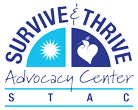As the summer season unfolds, it is essential that we come together as a community to address a grave issue that affects countless lives around the world: human trafficking. Recently, I had the opportunity to participate in the Survive and Thrive Advocacy Center’s (STAC) Anti-Trafficking Business Training, designed to equip workers with the knowledge and skills necessary to identify and combat human trafficking. Today, I want to share my experience and shed light on this important initiative.
As a student at Florida State University, I often find myself engrossed in the vibrant campus life, where every day brings new adventures and opportunities for growth. However, it is crucial to recognize that the world beyond our university grounds – as well as on campus – is not always as safe and welcoming. Human trafficking is a pervasive crime that exists in many forms and locations, often hidden from plain sight. It preys on vulnerable individuals, exploiting them for labor, sexual purposes, or even organ trafficking. This can include students, people in the service industry, housekeepers and groundskeepers, and many other people on campus.
My Student Internship with STAC
When I heard about the STACPRO training through my student internship with the Survive and Thrive Advocacy Center (STAC), a local anti-human trafficking organization, I felt compelled to take action and play my part in taking action to address this global issue. The training, funded by the Leon County Commission and City of Tallahassee, is a vital necessity for businesses and even relevant to other communities. The training created by STAC, which is in collaboration with the Leon County Sheriff, commissioners, and local business owners, really drives the issue close to home. It is aimed to equip students, community members, and workers with the knowledge and skills needed to identify the signs of human trafficking and take action to help.
The training session began with an eye-opening presentation about the realities of human trafficking. We learned about the various tactics traffickers employ, such as coercion, fraud, and manipulation, to exploit their victims. The statistics shared were startling, emphasizing the urgent need for awareness and intervention. One chapter is dedicated to identifying the signs of trafficking in various workplaces such as hotels, restaurants, financial institutions, retail, and offices. While it was disheartening to realize the scale of the problem, it also fueled my determination to make a difference.
Learning the Red Flags
One of the most significant takeaways from the training was learning to identify the red flags associated with potential human trafficking situations. We were taught to look out for signs like individuals appearing fearful, submissive, working even though they are injured, not getting paid, or under the control of someone else. Additionally, indicators such as inconsistent stories, lack of identification or personal belongings, looking like they need food or water, and a visible age discrepancy with their companions were highlighted.
The training also emphasized the importance of reporting any suspicions to supervisors in your workplace so that the appropriate authorities can act. We were provided with information on how to contact local law enforcement agencies and organizations dedicated to supporting and empowering human trafficking survivors. Recognizing that our actions can save lives, the training instilled a sense of responsibility within all participants.

Making a Difference Where You Are
As a bartender, I have a unique position within our community to observe people and their interactions. The STACPRO training has empowered me to be more vigilant and aware of potential signs of human trafficking in my workplace. I now feel better equipped to respond appropriately and involve the necessary authorities to ensure the safety and well-being of those who may be at risk. Maybe you have a job off-campus too, and this training can help you and your colleagues there!
I encourage all of you to consider taking the online STACPRO course or participating in future STACPRO training sessions or similar programs, as well as STACPRO internships. Maybe sex and labor trafficking are topics you want to learn more about as part of your studies? Or maybe you suspect someone is grooming a friend or family member right now? Click here to sign up for this FREE training today.
Seminoles Can Come Together to Help End Human Trafficking
We can all work together to end human trafficking. By coming together and educating ourselves, we can become a strong force against this heinous crime and support survivors. Remember, as proud Seminoles, it is our duty to look out for one another, both on campus and beyond. Together, let’s raise awareness, identify red flags, and create a safe environment for all. Stay informed, stay vigilant, and let’s make a difference!
Go Noles!
Kayla Tran
Florida State University Student, Bartender, and Certified STACPRO Participant







